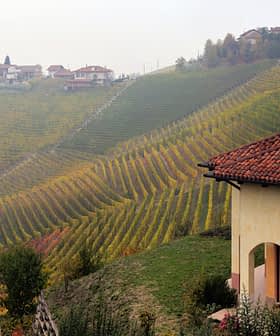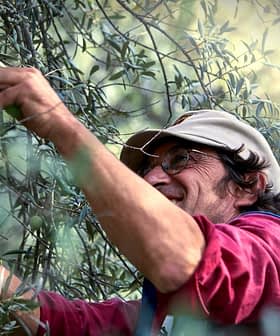Italian authorities blocked the sale of more than 2,000 tons of olive oil falsely labeled as Italian during an operation codenamed “Mamma Mia.”
Raids were carried out by the Central Inspectorate for the protection of quality and fraud prevention of food product (ICQRF) of the Ministry of Agriculture, Food and Forestry, coordinated by the Prosecutor of Trani Antonio Savasta, in collaboration with the Financial Police of Andria (Apulia), Crotone and Gioia Tauro (Calabria),
Our first goal is to defend consumers from frauds and make room in the market for the producers who work honestly.
The fraud ring, with an estimated illicit turnover of €13 million ($14.5 million), involved false documentation attesting the Italian origin of extra virgin olive oil that was, in fact, Spanish and Greek.
Sixteen seizures were conducted in Apulia, Calabria and Umbria, where bottlers seemed to be unaware buyers of the fake Italian olive oil. Eight people are now under investigation for food fraud and tax evasion.
Through a meticulous reconstruction of documents, the investigators of ICQRF discovered that in 2014 and 2015 the incriminated subjects disposed of the olive oil through fictitious sales with the collaboration of complaisant Italian and foreign operators. Foreign control bodies consulted by the Central Investigative Unit of ICQRF confirmed the fictitious transactions and the hypothesis of the investigation.
See Also:Articles on Olive Oil Fraud
“We blocked another attack to Italian olive oil thanks to the professionalism and expertise of our ICQRF inspectors,” said Minister of Agriculture Maurizio Martina. “Today’s action is part of a prevention and counteraction strategy that we are increasingly strengthening. Over the last 24 months we have carried out more than 12,500 inspections in the olive oil sector, following the olive oil path in the whole supply chain and often preventing that foreign products were sold as 100% Italian,” Martina said. “We must not lower our guard, and we have increased monitoring in the main arrival points. Our first goal is to defend consumers from frauds and make room in the market for the producers who work honestly.”
A few hours later, another operation in the olive oil sector was conducted by the State Forestry Corps, directed by the General Giuseppe Silletti, of the Regional Command of Apulia and of the CTA (Regional Coordination for the Environment) of Altamura-Alta Murgia National Park. The agents seized over 10 tons of colored table olives considered a health hazard. Eighteen are now under investigation for trade in hazardous food substances and production of food with chemical additives not authorized by law.
The color was applied in order to hide the flaws of the olives using a copper chlorophyllin complex, a food substance classified by the EU as coloring E141, prohibited both by Italian and European legislation, and the copper sulfate, which is harmful to human health. In some cases the presence of the illicit substances was detected in the production areas, while in others, it was found in samples of olives analyzed by the laboratory of ICQRF in Perugia (Umbria).
The agents also found ‘Made in Italy’ violations (Spanish and Greek olives sold as if they were from Apulia), fraudulent use of the Nocellara PGI origin designation and improper handling and storage of food.
The activities are part of a national program to control table olives carried out by the State Forestry Corps, which in Apulia inspected more than 50 companies, reported 23 alleged violators, seized more than 5,500 tons of table olives and imposed over €10,000 ($11,176) of administrative sanctions.
The agricultural association Confagricoltura Puglia urged the institutions to continue such efforts: “We fully support the work done by the judiciary in this difficult day for the Apulian olive oil sector. In defense of the honest companies in our territory, which are the majority, we hope that this time the investigations lead to a definitive and substantial outcome,” said the association’s president, Donato Rossi.
“We once again have to deal with tons and tons of counterfeit oil, millions of euros went up in smoke, dozens of people investigated. We therefore ask to the judiciary and the supervisory bodies for a more coordinated, strong and determined action in order to reach significant results.”








